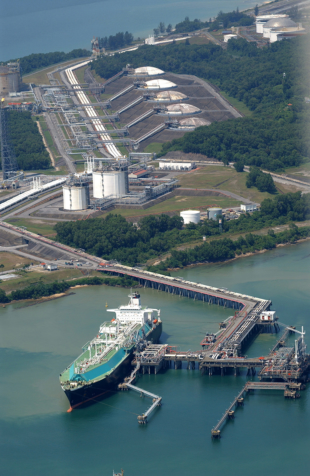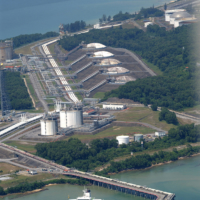For the past four decades, Petronas and Japan have nurtured a thriving partnership in the liquefied natural gas industry. As one of Japan’s preferred LNG suppliers, Petronas has fostered this relationship through reliability, collaboration and shared ambitions toward a sustainable future.
Petronas is a significant player in Japan’s LNG landscape, offering a reliable and extensive supply network. With one of the closest supply nodes and a strong presence across Japan, Petronas has delivered over 8,000 LNG cargoes to 29 out of 37 receiving terminals in the country. Moreover, Malaysia, through Petronas’ production facilities, stands as Japan’s second-largest LNG exporter, contributing approximately 17% of Japan’s total LNG imports in 2022. This remarkable familiarity and experience have solidified Petronas’ position as one of Japan’s preferred and trusted LNG suppliers.

Petronas’ partnership with Japan dates back to 1982, when the company became an ardent supporter of the Malaysian government’s Look East Policy. This collaboration took flight when Malaysia delivered its first LNG shipments to Tokyo Gas Co. and Tokyo Electric Power Co. in January 1983 following the establishment of Japan Malaysia LNG Co. Over the years, Petronas has expanded its production capacity with Japanese joint ventures, including the Petronas LNG Complex in Bintulu, Sarawak state, now one of the world’s largest. Since 2017, Petronas’ representative office in Japan has further strengthened collaboration with Japanese partners and stakeholders.
Both Petronas and Japan share the common goal of achieving net zero carbon emissions by 2050. In fact, Petronas is the first oil and gas company in Southeast Asia to declare its ambition to achieve net zero carbon emissions by 2050. Similarly, Japan pledged at the 2021 United Nations Climate Change Conference to work toward decarbonization in Asia. Petronas believes that natural gas plays a pivotal role in achieving this shared goal due to its distinct environmental advantages. As natural gas emits 40% to 50% less carbon dioxide than coal, it offers a smoother transition toward cleaner energy sources while ensuring energy security and affordability. With this fuel comprising 70% of Petronas’ portfolio, the company is actively expanding access to natural gas, including LNG, aligning with Japan’s carbon neutrality journey.
To realize their shared vision, Petronas and Japan have engaged in various energy transition partnerships and initiatives. These collaborations include exploring carbon capture and storage opportunities with Japan Petroleum Exploration Co., low-carbon energy projects with JERA Co., and the development of a competitive, clean hydrogen supply chain with ENEOS Corp. Petronas also joined hands with Sumitomo Corp. and Tokyo Gas to study the feasibility of setting up a carbon-neutral methane supply chain.
Over the past 40 years, Petronas has strengthened its position as Japan’s preferred energy partner by emphasizing its reliability and customer-centric approach. With a shared commitment to achieving net zero carbon emissions, Petronas and Japan are forging ahead on their journey toward a cleaner, greener future through innovative collaborations and responsible energy practices.





